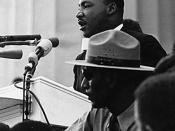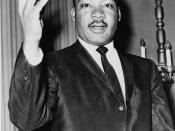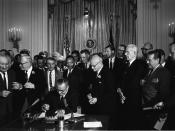Gun Control: Necessity or infringement of rights?The debate on gun control is dominated by emotion and fear. The right to bear arms or its ban is a fundamental issue, one that involves our constitutional rights. The dispute on gun control starts with the interpretation of the second amendment which provides that "A well regulated Militia, being necessary to the security of a Free State, the right of the people to keep and bear Arms, shall not be infringed." The issue turns on whether the right to bear arms represents an "individual" or "collective" right. Gun control policies attempt to regulate ownership and use of firearms. These policies include legislation on local, state and federal government level. The first attempt at gun control was The National Firearms Act in 1934 which imposed a tax on sale and transfer of machine guns and short-barrel firearms. In 1968, following the assassinations of Martin Luther King Jr.,
John F. Kennedy and Robert Kennedy, the Gun Control Act was passed. It prohibits felons and the mentally ill from buying firearms and bans the sale of mail-order firearms, as well as rifles and shotguns. These and other policies are established in the attempt to reduce violence. There are those who support these legislations and those who disagree with them. Opposition of federal control is very strong. Those against it say that it will not lower the death rate related to crime, because of other weapons available. They argue that control creates problems for law-obeying citizens. They also believe that it is infringement of their constitutional rights. Those who support gun control say that restricting accessibility to firearms will save innocent lives by keeping guns from the hands of high-risk persons. They also believe that private citizens should not poses firearms because they serve no military purpose.


